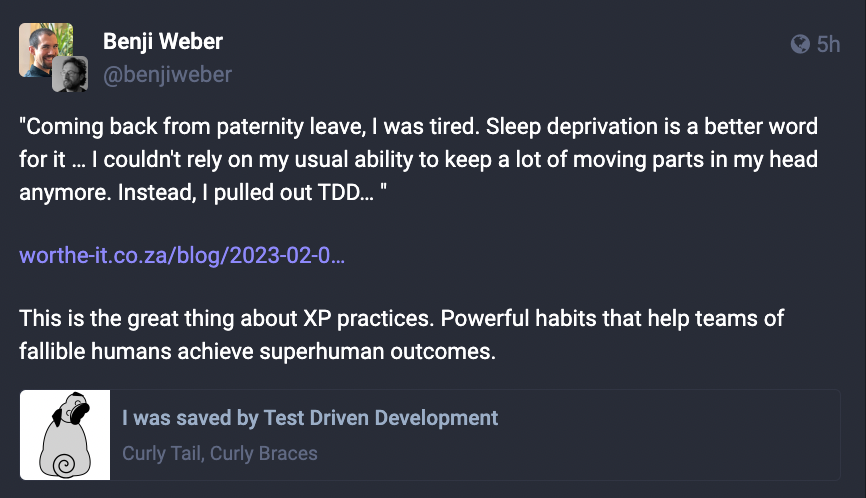A recent toot on Mastodon reminded me of a phenomenon I believe is pretty common these days: An unusual event causes us to reconsider our habits and assumptions in some way.
The toot was this one from Benji Weber, posted on February 9, 2023:

The blog post he references is here: I Was Saved By Test Driven Development.
The toot and blog post explain what happened clearly enough; there’s no need to reiterate the details.
The angle I’d like to bring out is the pattern: We operate in domain X in a certain way based on our established habits and our assumptions about the best way to do X. Then something unexpected and/or unusual happens that causes our habitual way of doing X to be uncomfortable, clumsy, expensive, or unworkable. At that point we reconsider our habits and assumptions, and possibly change the way we do X.
